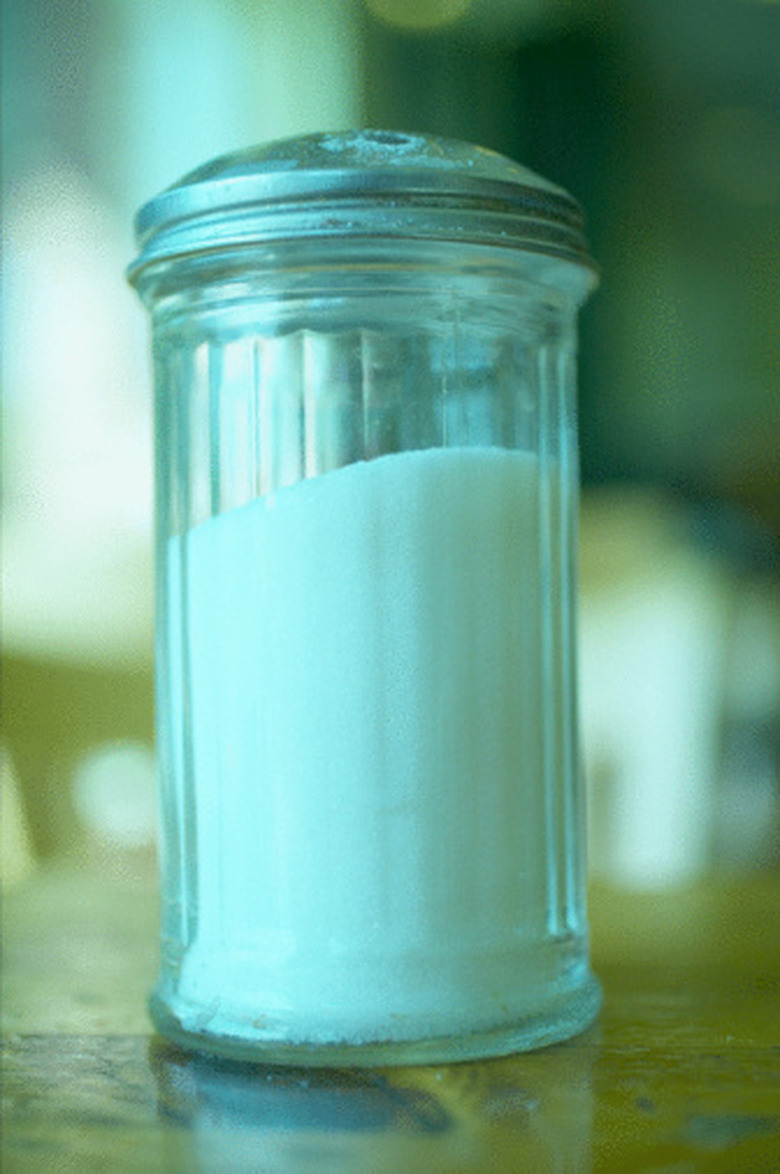Heat Absorption Properties Of Salt
Sodium chloride, the same substance that you sprinkle on your french fries for lunch, is a useful chemical. One of its most useful qualities is heat absorption. Salt — the more common name for sodium chloride — is a crystal that can absorb heat very effectively because of its particular physical and chemical properties.
General Physical Properties of Salt
General Physical Properties of Salt
Salt is a crystalline mineral. Like many minerals, it has a very high melting point. Salt's melting point is 800.8 degrees Celsius, or 1473.4 degrees Fahrenheit. At this temperature, salt turns into a liquid. Salt has an even higher boiling point of 1465 degrees Celsius, or 2669 degrees Fahrenheit. At this temperature, liquid salt turns to vapor. As you can see, salt can absorb tremendous amounts of heat before it undergoes a phase change, turning from solid to liquid and from liquid to vapor.
Heat Absorption and Freezing
Heat Absorption and Freezing
Salt's heat absorption properties have an effect on the freezing temperature of liquid, particularly water. Salt lowers the freezing point of freshwater to below 36 degrees Fahrenheit; this is called a eutectic reaction. For example, ice melts when it comes in contact with salt because salt lowers the freezing point of ice, returning ice to a liquid state.
Saltwater Heat Absorption Properties
Saltwater Heat Absorption Properties
The saltwater in the oceans is composed of 3.5 percent salt, which is mostly sodium chloride. This water has different heat absorption properties than regular water. Saltwater absorbs slightly more heat than freshwater. This fact is very important because it concerns global warming: as the temperature of Earth's surface rises, the oceans trap heat, which can affect weather patterns and ocean currents.
Cooking Use
Cooking Use
Chefs take advantage of the incredible heat absorption properties of salt by using it as a cooking medium. They use salt heated in a large wok to fry items like peanuts and popcorn. Chefs also roast meat by encasing it in a crust of rock salt and baking it. The hot salt traps heat inside and insulates the meat so that it cooks quickly and stays moist.
Cite This Article
MLA
Cato, Jeremy. "Heat Absorption Properties Of Salt" sciencing.com, https://www.sciencing.com/heat-absorption-properties-salt-8464613/. 24 April 2017.
APA
Cato, Jeremy. (2017, April 24). Heat Absorption Properties Of Salt. sciencing.com. Retrieved from https://www.sciencing.com/heat-absorption-properties-salt-8464613/
Chicago
Cato, Jeremy. Heat Absorption Properties Of Salt last modified March 24, 2022. https://www.sciencing.com/heat-absorption-properties-salt-8464613/
